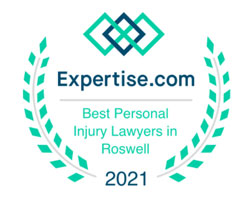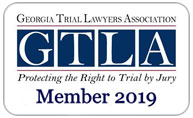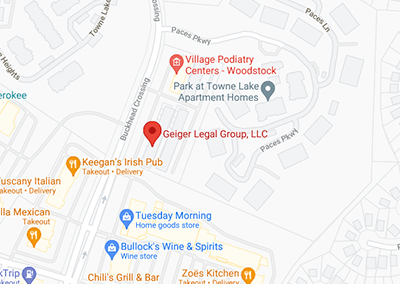What Is Considered a Personal Injury?
Personal injury is a legal term for when someone is harmed due to something another person, company, or government entity did or failed to do. You might be able to file a personal injury claim for compensation if you’ve been injured in an accident caused by someone else’s negligence. However, you can only recover the money you deserve if you can prove your case.
To win a personal injury claim, you must demonstrate liability and damages.
Liability: Whether a reckless driver or a careless product manufacturer caused your injuries, you will have to show that some other party was liable for providing a safe environment but failed to do so. For example, in the case of a car wreck, you’ll need to show that the other driver violated his or her duty to others on the road by doing something negligent that caused you harm, like driving drunk or being distracted.
In some cases, multiple parties could be held liable. For instance, in a truck accident case, the truck’s driver, the trucking company, mechanics, truck part manufacturers, cargo companies, and others might be held responsible. Determining all the parties that might be liable, and gathering evidence to prove they were negligent, is crucial in establishing a personal injury case.
Damages: You must also prove that someone else’s negligence directly caused your injuries. Evidence might include pictures of the accident scene and your injuries, eyewitness accounts, medical records, and expert testimony. Your lawyer will know exactly what evidence is needed to support your case.
Types of Damages You Could Recover in a Georgia Personal Injury Claim
After a serious accident, all you want to do is get on with your life. But your injuries and the resulting financial hardships can make that difficult to do. If your accident was caused by someone else, you may be able to recover compensation from the at-fault party to help cover the damages.
The amount you might recover in a Georgia personal injury settlement or court award will depend on the details of your case. However, compensation typically includes things like:
- Outstanding medical bills
- Future medical expenses
- Disability accommodations
- Physical, occupational, and emotional therapy
- Property damages
- Lost wages
- Reduced ability to earn future income
- Pain and suffering
It’s even more challenging to move on if a loved one was killed due to someone else’s negligence. While no amount of money can ever truly compensate you for the loss of your loved one, a wrongful death claim can help you pursue payment for damages resulting from the accident.
A wrongful death personal injury claim may include compensation for:
- Funeral and burial expenses
- Pain and suffering
- Lost companionship
- Loss of your loved one’s income
- Loss of services provided by your loved one
Insurance companies may be quick to offer you an easy settlement that looks like it will cover your immediate needs. However, you should never accept payment without talking to an attorney who has your best interests at heart. Personal injury lawyers work based on a contingency fee basis, so we never charge you a fee, unless your case is won.
How a Georgia Personal Injury Lawyer Can Help You
After a devastating accident, it’s difficult to know what you need to do and where to start. Our lawyers can help you decide on a plan of action and support you through the process.
Some of the specific ways our experienced personal injury attorneys can help include:
- Make sure you understand your rights. Our skilled injury lawyer can evaluate your case and help you understand your legal options. We can collect all the details from your case to determine how much money you deserve for your injuries. Our attorney can answer any of your questions to help you understand the process, relevant laws, legal requirements, ways that you can help your case, and what to expect every step of the way.
- Proving your case. An experienced personal injury attorney from the Geiger Legal Group, LLC will perform an in-depth investigation to gather the details of your accident. We will determine all the parties that can be held liable, collecting evidence as to who caused the accident and the extent of the injuries you have suffered. This might include gathering documentation – such as medical records, witness statements, and photos of the accident scene – or evidence that’s more difficult to obtain, such as surveillance videos or maintenance records. If necessary, our lawyer will bring in experts, including medical professionals and accident reconstruction specialists, who can testify in support of your case.
- Fighting on your behalf. An experienced personal injury lawyer from Geiger Legal Group can negotiate on your behalf with the other party’s insurance company. Unfortunately, the insurance company typically does all it can to avoid paying large settlements. Our knowledgeable attorney understands the tactics insurance companies use and can help fight against them. If the insurance company fails to agree to a fair settlement, our seasoned trial lawyer can file a lawsuit on your behalf and fight for your rights in court.
Statute of Limitations for Personal Injury Claims in Georgia
According to the legal time limits (known as the statute of limitations) in Georgia, you must file a personal injury lawsuit within two years of the date of the accident or event that caused your injury. Two years may seem like a long time, but there is a lot of work that must be done to properly prepare your claim. The sooner you contact our Georgia personal injury attorneys, the sooner we can begin piecing together a strong claim for the full compensation you deserve.
Steps to Take to Protect Your Rights After a Georgia Accident
Accidents can leave you feeling helpless, but there are steps you can take to stand up for yourself and protect your rights. The following are important pieces to your personal injury claim:
- Report the accident. Make sure you report your injury through the proper channels. If a motor vehicle accident caused serious injuries or property damage, call 911 for help so law enforcement can investigate and file a report. If you were injured on someone else’s property, report your injury to the property owner.
- Get medical attention. If you can, get medical attention at the accident scene, or have your injuries evaluated by a doctor as soon as possible. A physician can treat your injuries and help you avoid long-term medical complications. Furthermore, your medical report is a vital piece of evidence if you decide to file a claim.
- Document the accident. Take pictures of your injuries, damage to your property, and anything around the accident scene that could be relevant, such as road conditions, weather conditions, skid marks, uneven stairs, sidewalk damage, road signs, warning labels, or lack of warning signs. Save all receipts and bills related to your treatment.
- Speak to witnesses. Write down the accounts of people who saw the accident. Be sure to get their names and contact information. Get information from the other people involved in the accident as well, such as their names, contact information, employer’s information (if the crash happened on company time or at a business location), the names of any applicable property owners or managers, insurance information, and license plate numbers.
- Keep detailed records. Make note of anyone you speak with regarding either the accident itself or any relevant appointments. At medical visits, write down the date of your appointment, the name of the medical professional, the symptoms you’re experiencing, the physician’s advice for treatment, and the next steps you’ve been recommended to take.
- Be careful what you say. Don’t apologize or admit fault for the accident to the other party, the police, or an insurance agent. Don’t sign anything unless the police require it.
- Do not speak to the other party’s insurance company. Until you’ve consulted an attorney, do not provide a statement to an insurance adjuster. The insurance company can use your words against you. Something as small as saying you’re sorry can be used by the insurance company to deny or reduce your claim. Insurance adjusters might rush to the accident scene or contact you soon after the accident when you’re still in shock. They may try to talk you into a settlement that’s much lower than what you truly deserve.
- Contact a personal injury attorney as soon as possible. You should never try to handle a personal injury claim by yourself. Having an injury attorney from Geiger Legal Group, LLC on your side can help reduce your stress and ensure you are demanding the maximum compensation you deserve.
Common Types of Catastrophic Injuries
Accidents can cause a range of injuries, from scrapes and bruises to fatal wounds. Catastrophic injuries can completely change your life. These injuries might make it impossible for you to work, or even force you into round-the-clock care. Some common types of catastrophic injuries include:
- Broken bones
- Disfigurement
- Loss of hearing or sight
- Burn injuries
No matter what type of injuries you have suffered, you should not face additional financial burdens due to someone else’s negligence. Please contact our respected personal injury law firm to learn how we can help.
Talk to a Canton Personal Injury Lawyer Now
If you were injured by someone else’s negligence, or if your loved one was killed because of someone else’s reckless actions, you have a right to demand justice. The experienced legal team at Geiger Legal Group, LLC is here to help you pursue the full and fair compensation you need to get your life back on track.
Contact the compassionate Georgia personal injury lawyers at Geiger Legal Group, LLC today to set up a free consultation. For years, we have been making a difference in the lives of accident victims in Canton, Cherokee County, and throughout North Georgia. Now, we stand ready to serve you.
Personal Injury FAQs
Personal Injury FAQs
In general, you should always consult with a personal injury lawyer after you have been in an automobile crash. Insurance companies are professionally trained to diminish the value of your case and force you into an early settlement. A personal injury lawyer equalizes the insurance company’s advantage in the negotiation.
When you are considering whether to hire a personal injury attorney, consider some of these questions.
What type of injury did you sustain? If you were taken to the hospital, or a follow up doctor’s visit revealed serious injuries in diagnostic testing, then you should absolutely consult an attorney. An example would be a broken bone, or bulged disc caused by whiplash.
In addition to seeking immediate medical treatment, you should be following the doctor’s orders for recovery. This is important for two main reasons: it gives you the best shot at a quick and safe recovery, and it shows you are in need of and committed to your recovery.
Is the at-fault insurance company fighting liability? Many times, insurance companies go against the findings by the responding police officer to try and help their insured – the at-fault driver. Sometimes, they may partially blame you for the crash, even when you had no fault at all. In this scenario, a personal injury attorney can help.
How recent was the accident? Georgia has a standard two-year limitation in which you need to file an action for injury to their person. If you fail to bring your claim within two years of the date of the crash, the court will deem your claim time-barred, meaning you can no longer recover.
Do you feel overwhelmed with constant medical bills? After a crash, you could easily incur over $7,500 in medical bills simply by taking an ambulance to the hospital for a brief evaluation. These bills will rise even further if you were admitted or surgery is required. A personal injury lawyer can assess your insurance plan’s medical payment policy to determine if any immediate payment can be made prior to a settlement.
Yes! Be 100% forthright and honest with your attorney. First, make sure you vet your attorney before hiring them. But once you are working with them, it is their job to help assess everything about your case and do their best job to represent you. If there is information that comes out during a case (or trial) that they could have known before, it could undermine your entire case.
You are better off telling your attorney something you think may hurt your case so they can prepare for it, instead of letting them be caught by surprise later.
The number one thing you can do to be prepared for a personal injury is to be healthy beforehand. Complete your physical every year (even better, every six months), get your bloodwork done, and take care of yourself. If an accident occurs, you can show definitive proof of the negative effects the accident had on you.
This is a common answer for questions regarding personal injury cases: it depends. It can take around 12-18 months, or sometimes longer. That is where your patience comes in. In general, personal injury cases should never be settled until you are fully recovered from your injuries, or your future medical treatment is well documented and affirmed to by your doctors. Because you have been injured by the fault of someone else, you should be paid for all of those injuries now, including any potential future surgery and treatments.
Sometimes, we are able to settle a case much faster than the average 12-18 months, but this strictly depends on the amount of insurance coverage that is available. For example, the at-fault party may only have $25,000 of coverage and does not have any assets to recover from. If your injuries far exceed that coverage within a few months following the incident, we may be able to resolve the case more quickly.
However, the legal system is slow. There are a number of hoops to jump through and time limits are set by statutes and judges. We will keep you informed of the status of your case, and whether we advise moving quickly or slowing the case down while you recover, all depending on your circumstances.
A personal injury case should not cost you anything out-of-pocket, just time and patience. Typically, personal injury attorneys work on a contingent fee basis, which means they are paid a percentage of the gross recovery from the case. That percentage ranges from 25% statutory for workers comp, up to 40% other personal injury cases. Personal injury attorneys should also front the cost to prosecute the case, such as cost to obtain medical records, filing fees, and expert testimony. Those costs are recouped by the law firm at the end of the case.
The fee charged should handle negotiation of the cost to repair or replace your car (property damage), gross settlement for your bodily and personal injuries, and negotiation of any and all liens related to the claim (such as health insurance liens). If an attorney seeks to charge you separately for each of these, or adds on additional fees (beyond the costs listed above), that is a red flag.
Keep a record of everything. Save medical receipts, save receipts from anything you need to buy due to the accident (repairs, quality of life, etc), and record any time you are missing work (and income). Keep a journal of how you are feeling, your pain (commonly called a “Pain Journal”), and what you are going through. This will be important for proving how the accident has affected your life and to “quantify” the amount of suffering you are going through. It may seem blunt to talk about your situation like that, but the goal is to give you the best chance at recovery.
Do not sign ANYTHING without a thorough review, preferably by a personal injury attorney. If you accept any kind of payment or reimbursement, or if you accept fault or responsibility for anything more than you should, that could have a detrimental effect on the outcome of your case. The insurance company is trying to pay the smallest amount possible to make a case go away. And they are going to do everything they can to make that happen. This may be the only time you have to deal with an insurance company, but they do this all the time. Do not underestimate their intentions.
Catastrophic injuries are severe types of personal injuries. There will generally be life-altering changes to someone’s body and/or life.
From a legal perspective, catastrophic injuries describes any injury that hinders a person’s physical or cognitive abilities. Examples include spinal injuries, traumatic brain injuries, loss of limbs, paralysis, severe burns, and other life-altering injuries that can fundamentally reduces your ability to be self-reliant.
A catastrophic injury may require someone to use specialized equipment for the rest of their life. Or it may require a remodel of their home so they can more easily take care of themselves.
We created a short guide for what to do immediately after a car crash. But what’s the process after that?
If you haven’t already, you should always seek medical treatment for your injuries. Your injuries may seem minor at first, but it’s always best to have a doctor evaluate you to understand the extent of your injuries.
If you were sent to a hospital, especially by ambulance, then you should absolutely reach out to a personal injury attorney. In contrast, you may not need a personal injury attorney if you only have minor injuries. The only way to be sure, however, is to (1) go see a doctor for your injuries and (2) speak with an attorney. Most attorneys, including Geiger Legal Group, LLC, provide a free consultation.
At Geiger Legal Group, LLC, you can expect the following if we should handle your personal injury claim:
- Clear and easy communication between both your attorneys and paralegals. We know each client by name and update all of our clients bi-weekly on where their case stands.
- High-level advocacy and trial skills on your behalf to maximize settlements or verdicts.
- We are not a TV advertising firm and do NOT have 1,000+ cases so that you are just a number. We take a select number of cases and treat each case with the attention it deserves.
- Fairness. Our goal is NOT to make a quick buck off your case, but rather that you feel well represented so that you would be happy to recommend us to friends and loved ones.
If you have questions about how to handle your injuries or the personal injury claim process, you can call 770-720-4600 or text us at 770-741-2411 (you will get a response from a real human).
A deposition is a testimony that occurs outside of the courtroom. In general, the opposing attorney asks questions that you are required to answer under oath. You should treat a deposition as if you are being called as a witness in a courtroom, as most anything you say during the deposition can be used in the trial if it is related to the case at hand.
Since a deposition is so important to the outcome of a trial, it is important for you to be prepared beforehand. While you should check in with your attorney ahead of time, these are some guidelines we recommend:
- Dress appropriately. You should dress like you are appearing in court.
- Ask for a break when needed. While depositions can be quite long, ask for a break if you need one. Georgia allows a witness to take a break if needed. This is not a sprint and breaks will always be accommodated.
- Take a breath and think before you respond. Lawyers like to try and ask tricky questions. Think about the question that is being asked and answer only the question that is asked.
- Tell the truth. This cannot be said enough. You are under oath. Assume that the attorney asking questions already knows the answers and is just getting a statement directly from you. Lying, hiding information, or telling conflicting stories will only hurt your case.
- Answer fully. If you are asked to list something, give the whole list. Don’t try to be smarter than the lawyer by excluding certain elements of an answer. Again, assume they already know the answer.
- Answer simply. On the other hand, unless the question is specifically requesting more detailed information, keep your answers to”yes”,”no”,or”I don’t know.”
What questions will be asked at a deposition?
The exact questions asked at a deposition may vary, but some examples of questions include:
- What types of injuries and illnesses have you had during the course of your life?
- What types of lawsuits or legal claims have you previously been involved in?
- Do you have a criminal record? If so, what crimes were you convicted for?
- Who was with you when the accident happened? Were there any witnesses?
- What is the nature of your injury?
- Are there activities you cannot do because of your injury?
At Geiger Legal Group, LLC, we meet and prep our clients on what the deposition experience will be like, potential tricky questions they’ll encounter, and other guidance specifically tailored for their case.
Personal Injury
If you were injured due to someone else’s negligence—whether in a car crash, slip and fall, or another type of accident—you may be eligible to file a personal injury claim. A qualified personal injury lawyer can help you determine if you have a valid case during a free consultation.
As for how much your personal injury settlement might be worth, that depends on several factors, including:
- The severity of your injuries
- Medical bills and future treatment costs
- Lost wages or reduced earning capacity
- Pain and suffering
No two personal injury lawsuits are the same. That’s why our personal injury attorneys in Dalton, Canton, Woodstock, and across North Georgia take the time to understand your unique situation.
If you’re wondering whether you have a case, it’s always worth speaking with an experienced personal injury law firm—we’re here to help.
Absolutely. Hiring a personal injury attorney can greatly improve your chances of receiving fair compensation after an accident.
Personal injury law is complex. Without legal guidance, it’s easy to miss deadlines, undervalue your claim, or get pressured by insurance companies into accepting less than you deserve.
Our experienced attorneys handle everything for you—from collecting evidence and dealing with insurers to filing a lawsuit if necessary. Also, because personal injury lawyers work on a contingency fee basis, you don’t pay anything unless we recover money for you.
Not always. In fact, most personal injury claims are resolved through settlements without ever going to trial. A skilled personal injury lawyer will negotiate with the insurance company to reach a fair settlement on your behalf.
However, if the insurer won’t offer fair compensation, your attorney may recommend filing a lawsuit. If that happens, your personal injury law firm will handle everything—preparing your case for court and representing you every step of the way.
Ultimately, the goal is to help you recover what you’re owed—whether that’s through a strong settlement or, if necessary, in court.
A personal injury lawsuit starts when you’re injured because of someone else’s negligence. After your free consultation, your attorney will investigate, gather evidence, and try to negotiate a fair settlement.
If a settlement isn’t possible, your lawyer may file a lawsuit. Both sides will exchange information (a process called discovery), and the case may go to mediation or trial.
Whether you need a personal injury lawyer in Dalton, Canton, or Woodstock, we’re here to guide you every step of the way.
At our personal injury law firm, you won’t pay anything upfront. Like most personal injury attorneys, we work on a contingency fee basis—meaning our fee comes from your settlement or court award, not out of your pocket.
We typically receive a percentage of the total recovery. We also cover upfront costs like filing fees, expert testimony, and medical records. These expenses are reimbursed from the final settlement.
Whether you’re filing a personal injury claim after a car accident or pursuing a more serious lawsuit, we will fight for full compensation—while keeping the process as stress-free for you as possible.
















